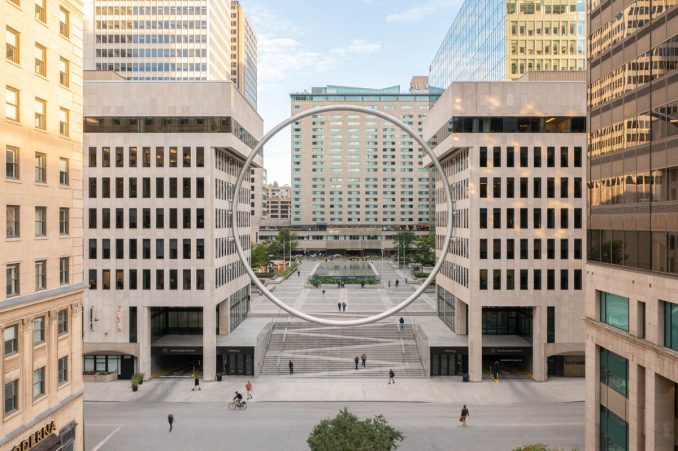
Sid Lee Architecture and Menkès Shooner Dagenais LeTourneux Architectes reveal the new Esplanade PVM in the heart of downtown Montreal and originally designed by I.M Pei and Henry N. Cobb. Designed by Sid Lee Architecture, and executed in collaboration with Menkès Shooner Dagenais LeTourneux Architectes, the project raises this modern public square to the stature worthy of a world metropolis.
Part of a broader plan to revitalize Place Ville Marie driven by investment from Ivanhoé Cambridge, the redevelopment of all public spaces, from Robert-Bourassa Boulevard to Mansfield Street, and René-Lévesque Boulevard to Cathcart Street, highlights this iconic space as an important gathering place.
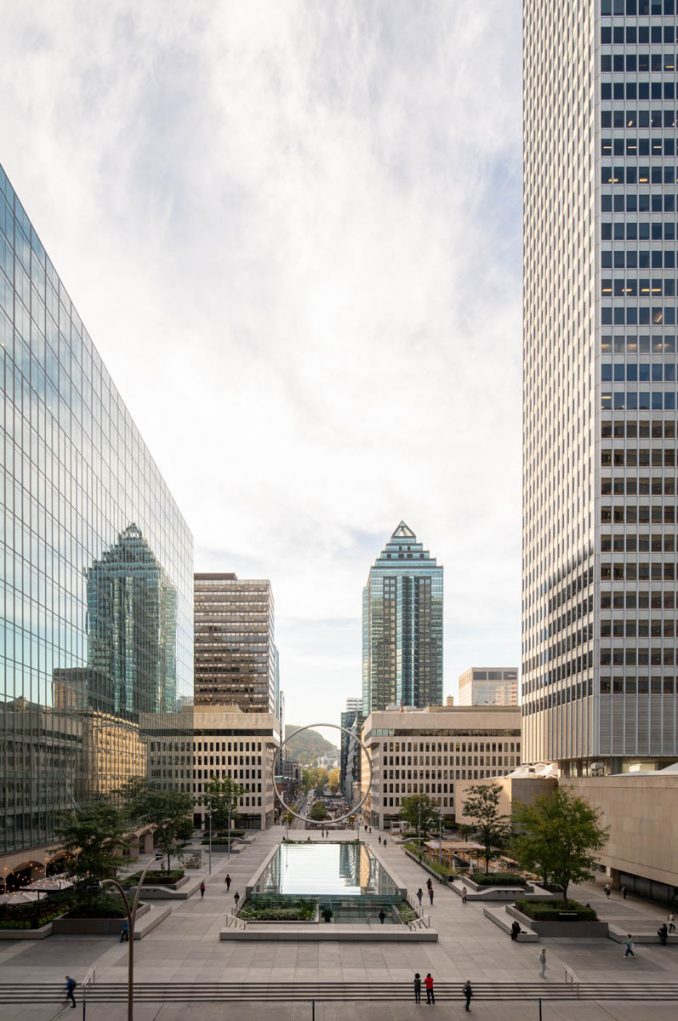
The public square offers a direct visual and physical connection to Mount Royal through the McGill College axis. The Ring enhances this connection, a monumental installation by CCxA, that frames the emblematic view. The renewed Esplanade PVM is a refreshed version of what it once was, now easier to navigate, socialize, and enjoy.
A Return to Roots
Kicking off in 2014 with a phase of formal and historical analysis, in some ways the new Esplanade evokes a sense of nostalgia, a return to the source. It reflects Sid Lee Architecture’s desire to reaffirm the importance of the public square, while staying true to the objectives and guidelines of the concept.
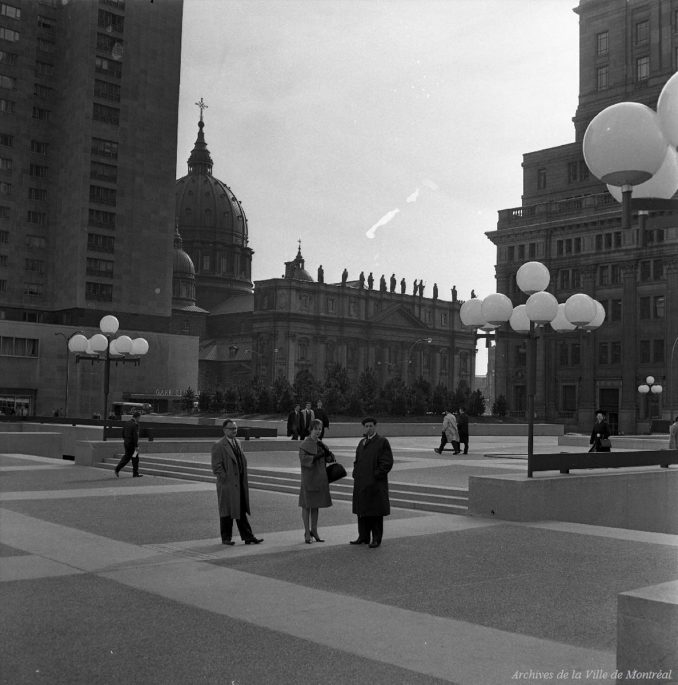
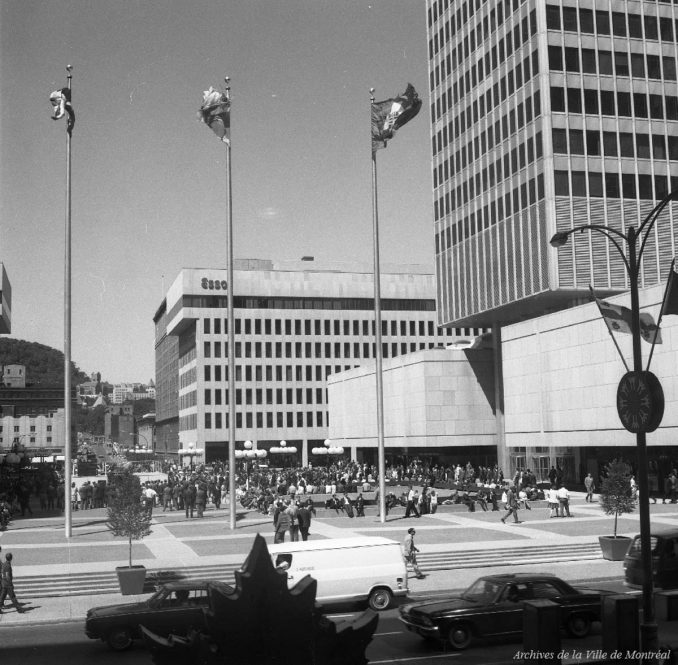
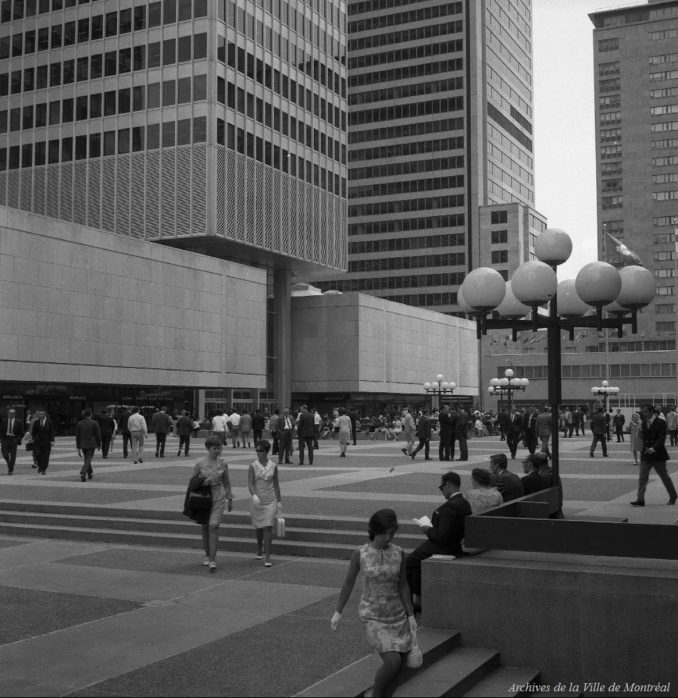
“We wanted to propose a refreshed vision for the Esplanade, one which preserved some of the natural elements from its last transformation, while restoring its original formal qualities and minerality.”
Jean Pelland, Architect and Principal Partner at Sid Lee Architecture.
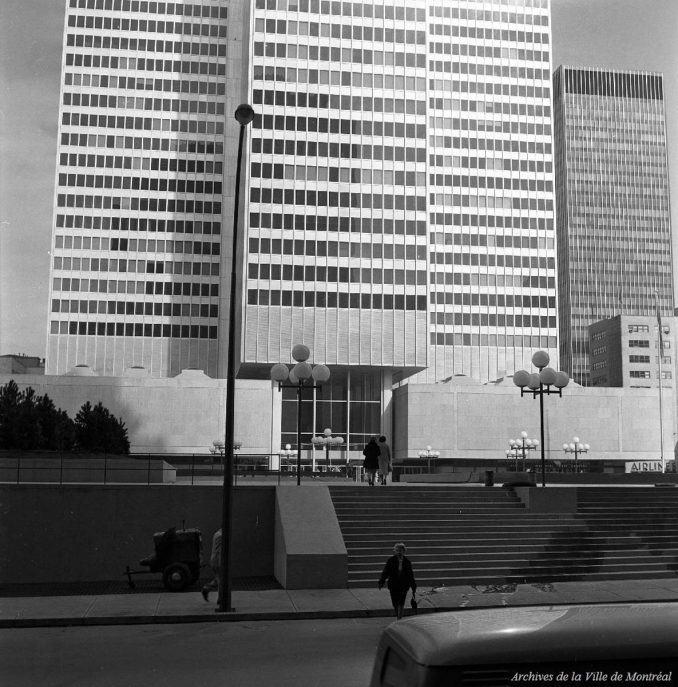
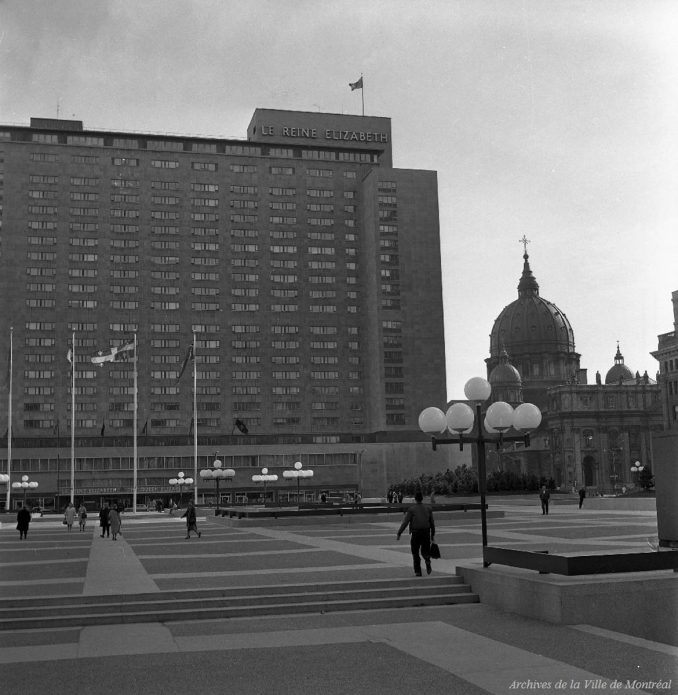
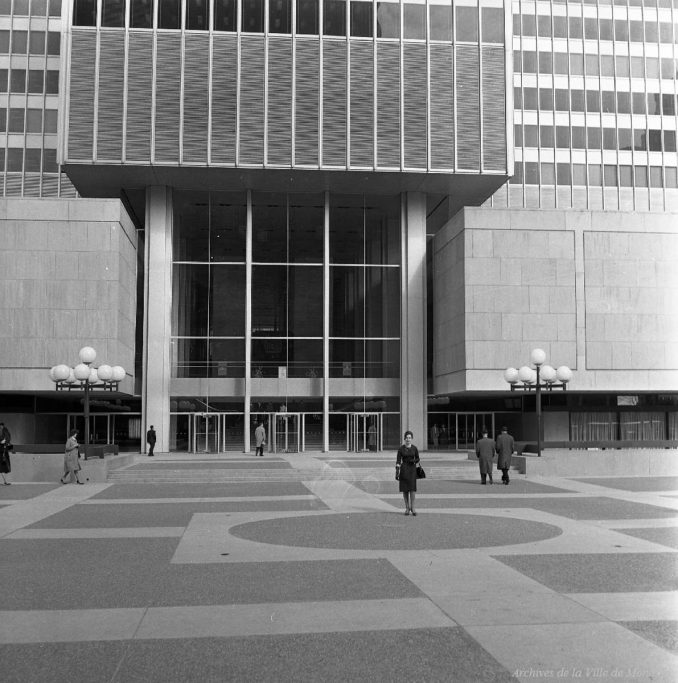
The last redevelopment was carried out in the 1980s to give the Esplanade the appearance of a large garden. This time, the firm returned to the space’s primary function and aesthetics, drawing its influences from modernist principles like the infinite grid and the free flow of the urban platform. The approach and final concept were presented to the famous original designer, Henry N. Cobb, who expressed enthusiasm for this new vision.
“The Esplanade revitalization has been thoughtfully conceived and brilliantly imagined. This work will greatly enhance Place Ville Marie’s contribution to the civic life of Montreal, fulfilling the promise of our original vision and thereby making me enormously happy” said Henry Cobb, Head Architect of Place Ville Marie.
Principle of Continuity
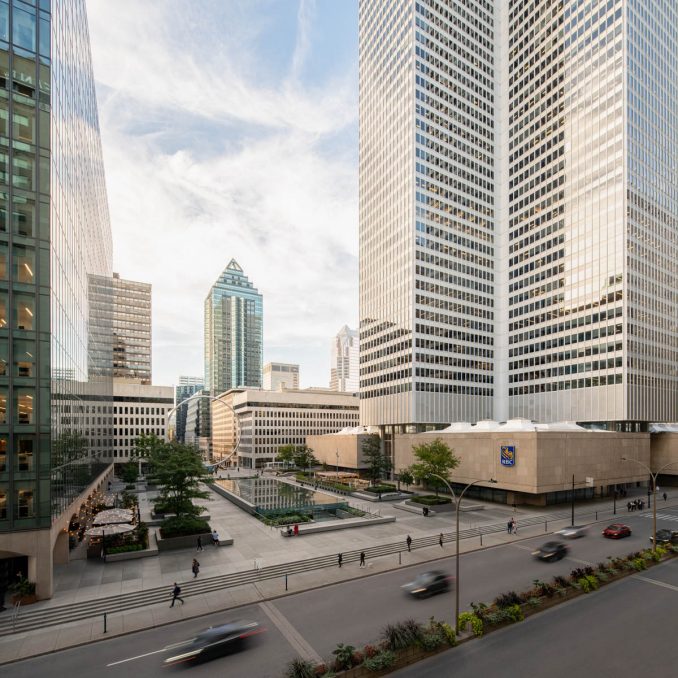
Making the Esplanade visually and physically accessible: this principle guided every aspect of the redevelopment proposed by the architectural firm. “We accepted from the outset that recreating the public square would require some real finesse, and that the primary objective was to preserve spatial continuity, while multiplying opportunities to create places of socialization,” says Jean Pelland.
Based on this principle of continuity, the architects founded their approach on the preexisting idea of an oversized slab on which buildings are placed. The minerality and fluidity of this layout hold other benefits; the open spaces are conducive to hosting events and the occasional transformation for new public activation programs.
The simplicity of detail makes the space easy to read. It dissolves the boundaries between the business district, social areas, and cultural areas. The renewed Esplanade thus captures the abundant dynamism of its urban environment and links life on the street to the interior of the buildings.
Opening the Esplanade
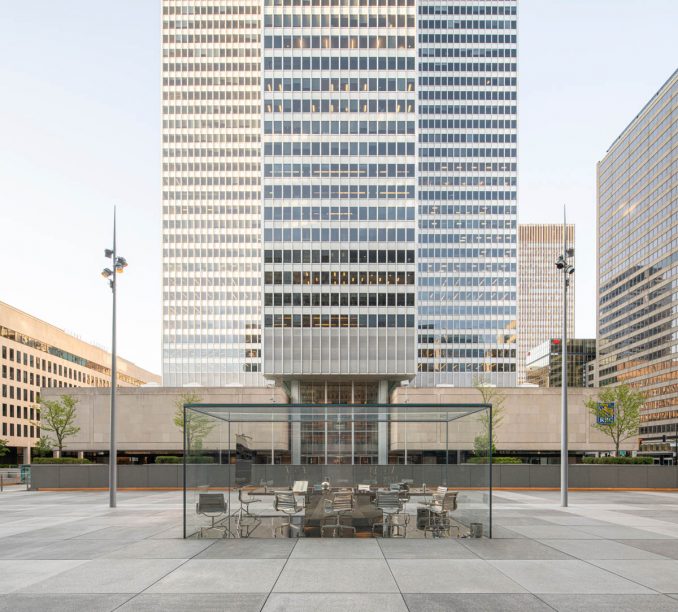
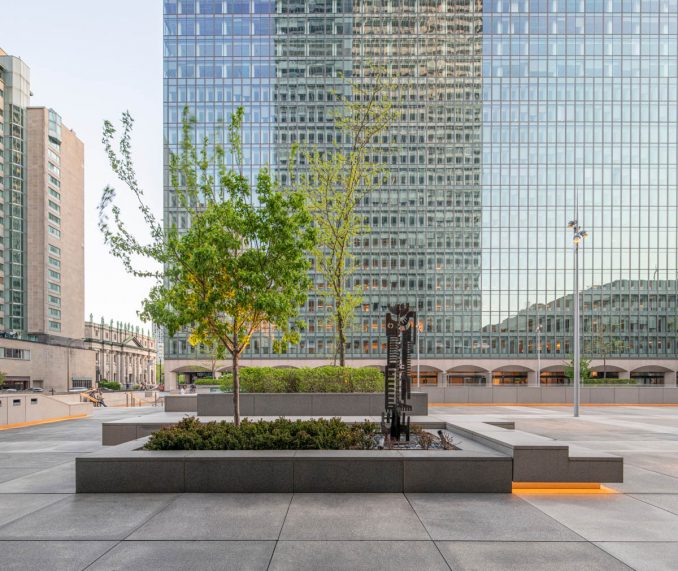
This major revitalization restores an emblematic downtown Montreal space to a privileged place at the heart of the city’s cultural and commercial life. Through the reconfiguration of its connection to the underground network, the modernization of its shopping mall, and the renovation of the entrance halls, the architectural response implemented connects it more than ever to urban life.
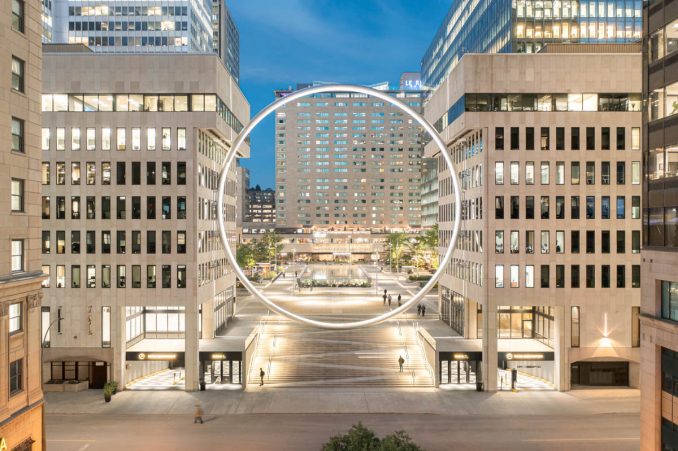
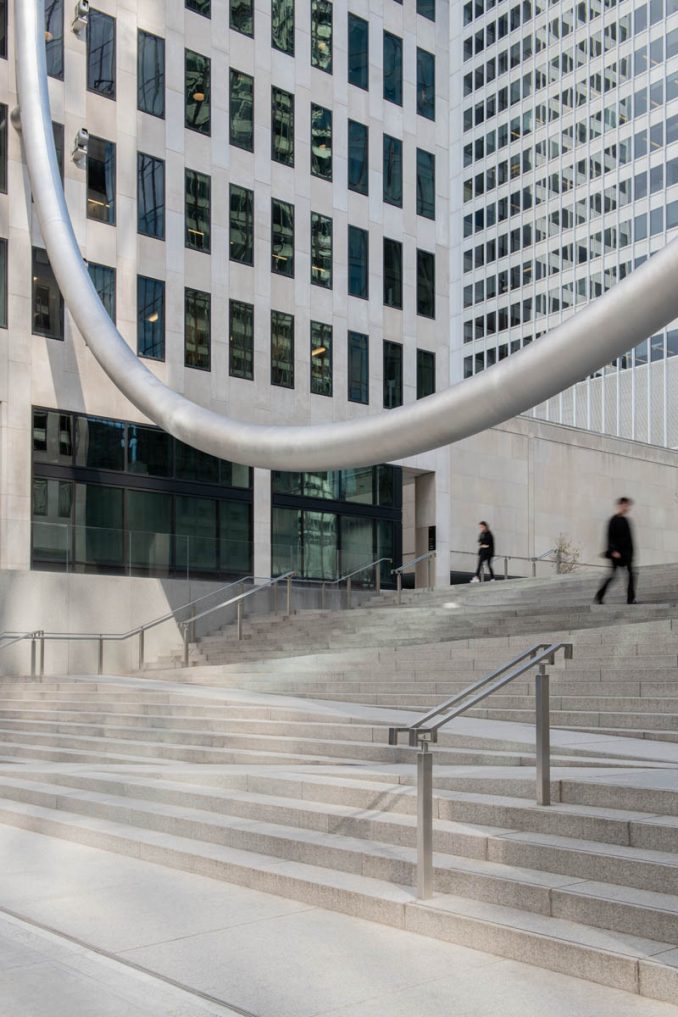
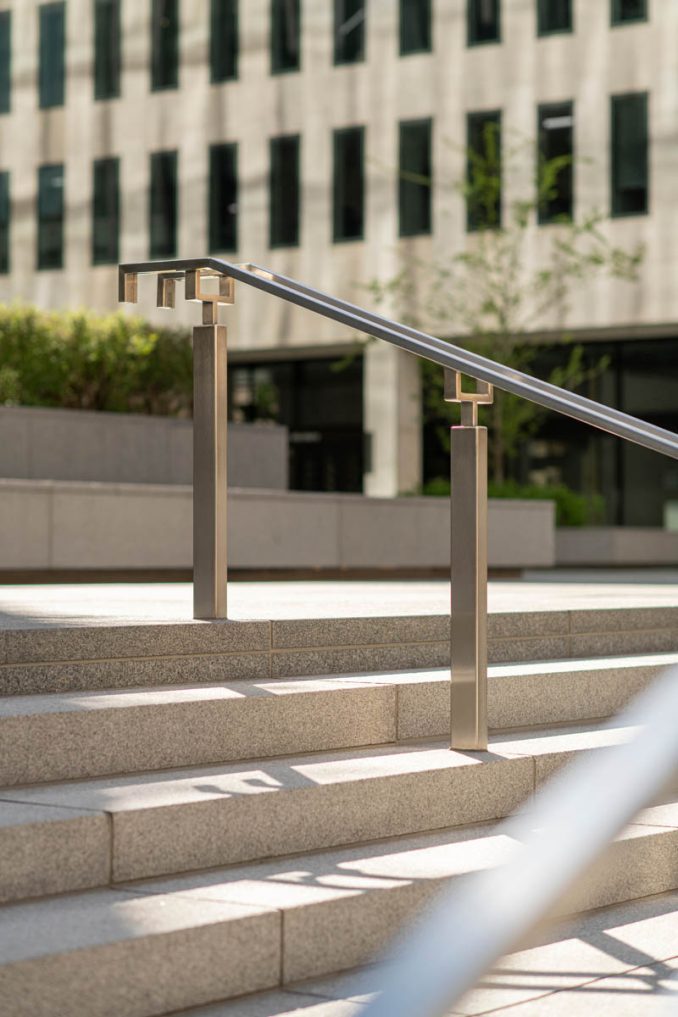
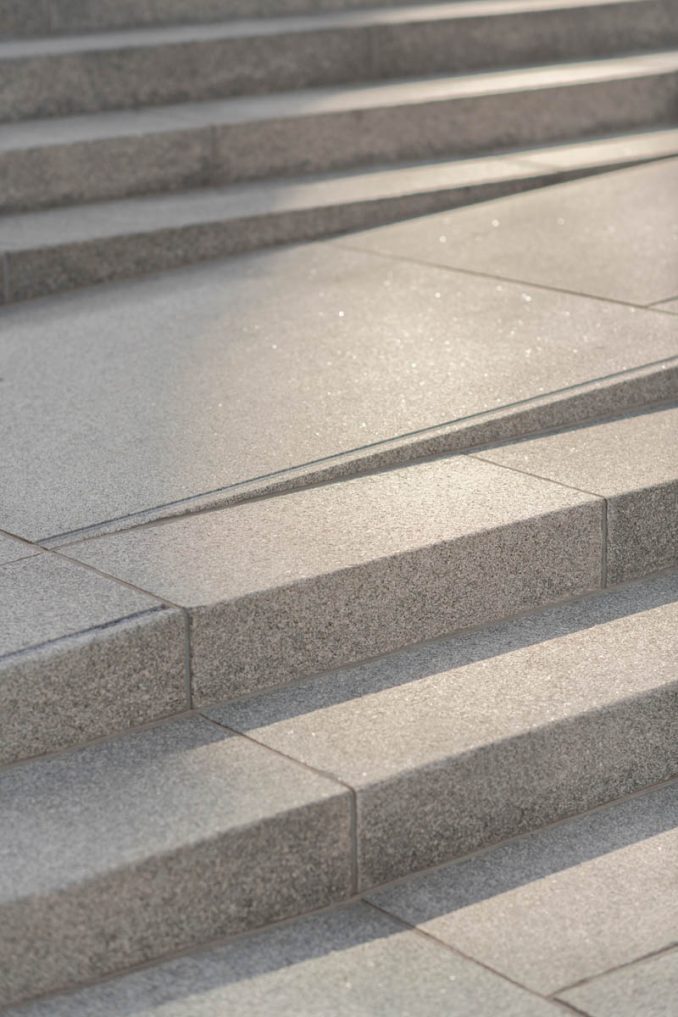
Paramount in the transformation is the reopening of the periphery of Place Ville Marie. Lined with stairs around the buildings, the public square invites circulation between the street and the interior. “Now linked to the central axis of McGill College Avenue by a monumental staircase, the Esplanade PVM opens up a remarkable view on Mount Royal,” says Yves Dagenais, architect, and senior partner at Menkès Shooner Dagenais LeTourneux Architectes. This staircase, including an embedded access ramp, creates a direct link that ensures fluid movement between the street and the raised public space. The large entrance to the underground parking lot that previously favored vehicular crossings was moved aside to welcome foot traffic.
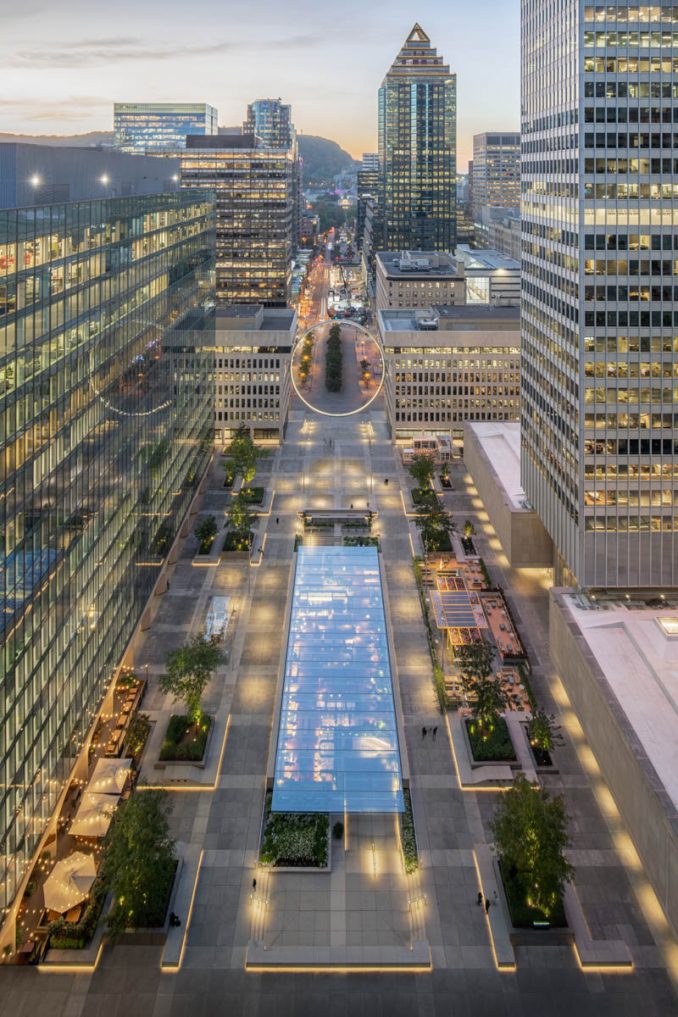
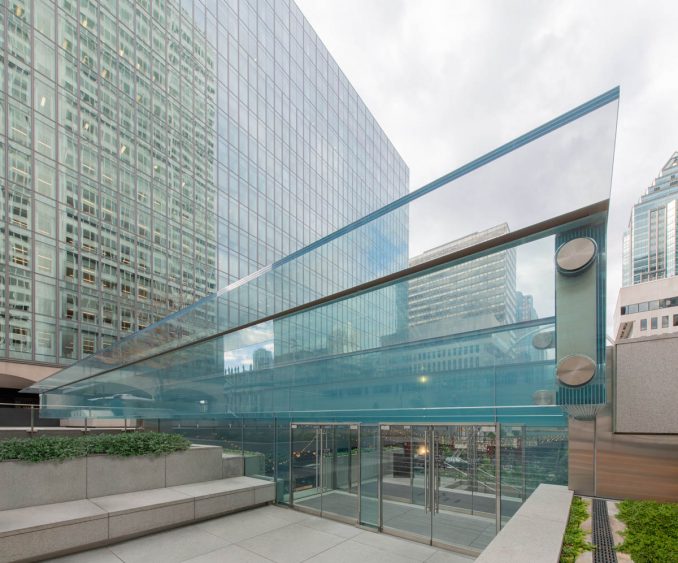
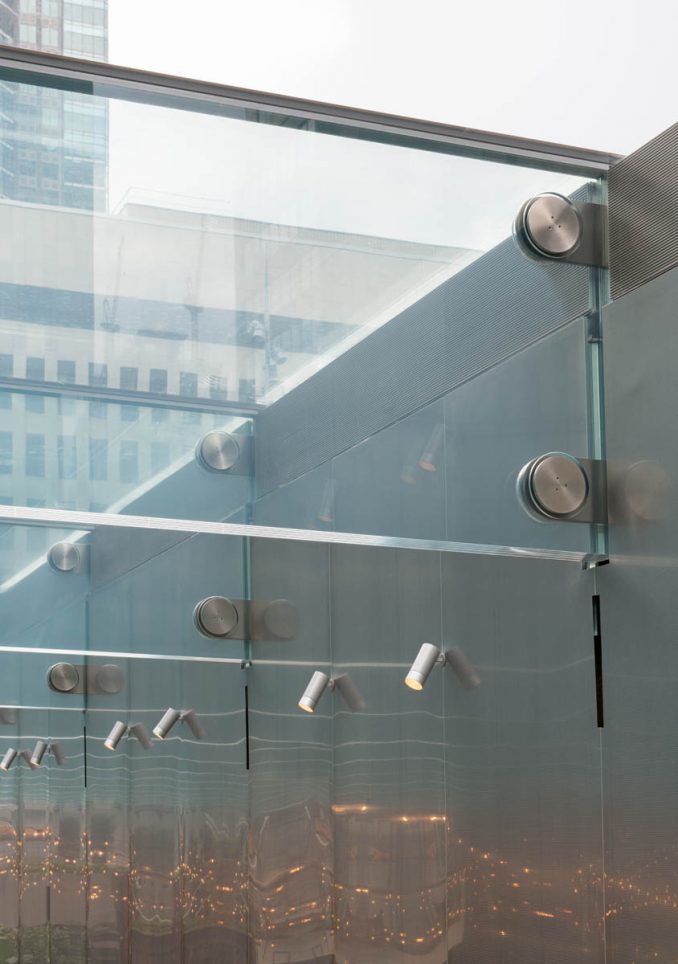
Once punctuated by four modest skylights, the Esplanade now boasts one of the largest horizontal glass structures in North America. The reflective effect created by this glass pavilion is reminiscent of the water basins typical of the public squares of the modernist era. This impressive, seemingly floating structure provides direct access to the 4-season Cathcart Restaurants & Biergarten in the heart of the underground gallery.
“The extraordinary 16-foot-high glass pavilion is supported by 18 glass beams. It not only houses the food court, but also beautifully blurs the boundaries between inside and outside, contributing to the life of the public square.”
Yves Dagenais
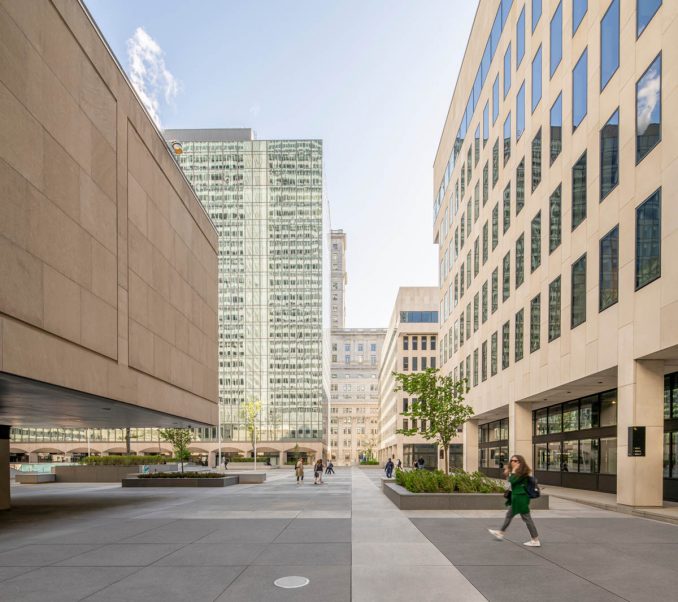
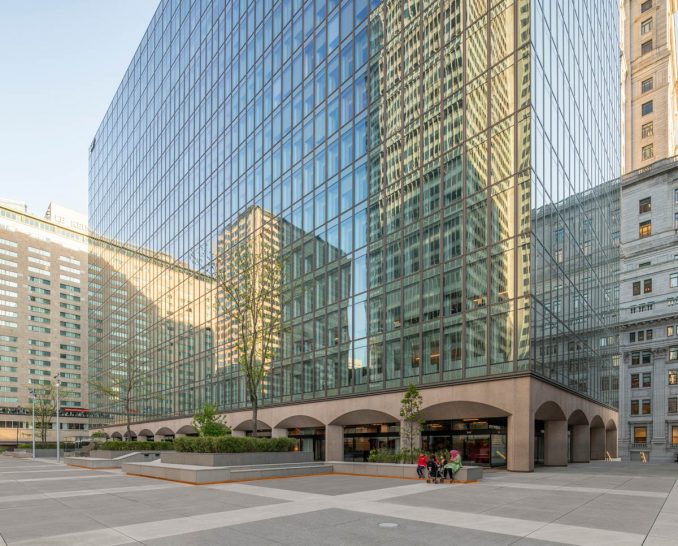
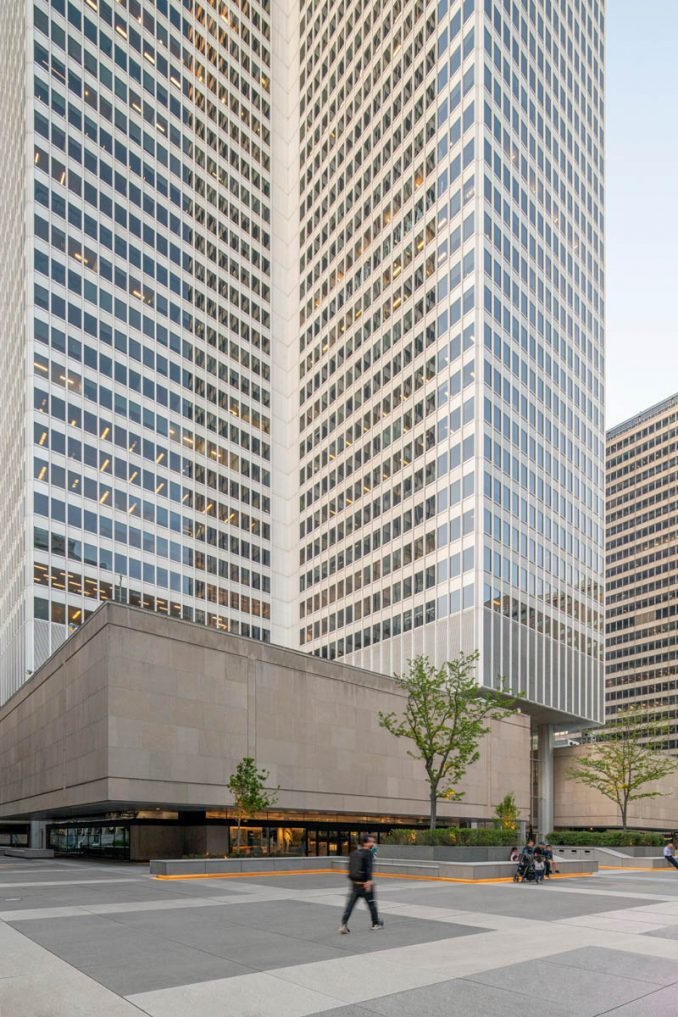
The return to uniform materiality permeates the entire architectural landscape, bringing together public areas and buildings. The choice of materials and the arrangement of forms reaffirm the idea of a universal layout, a foundational concept of Place Ville Marie. Evident even in the Esplanade’s tiling, this grid links the towers visually and underscores the importance of the character of this project to the heart of the city.
Esplanade PVM | Montreal, Canada | Sid Lee Architecture & Menkès Shooner Dagenais LeTourneux Architectes
Location: Place Ville Marie, Montreal, Canada
Client: Ivanhoé Cambridge
Area: 150 000 sq. ft.
Concept & Vision: Sid Lee Architecture
Execution: Consortium Sid Lee Architecture | Menkès Shooner Dagenais LeTourneux Architectes
General contractor: Pomerleau
Structural engineers: NCK Inc.
Electromechanical engineers: Bouthilette Parizeau (BPA)
Landscape consultant: BC2
The Ring installation: CCxA (previously known as Claude Cormier + Associés)
Lighting consultant: Lightemotion
Project management: JAJKO
Glass specialists: Seele and Techniverre
Photographer: David Boyer
Archive Images: Montreal Archives
